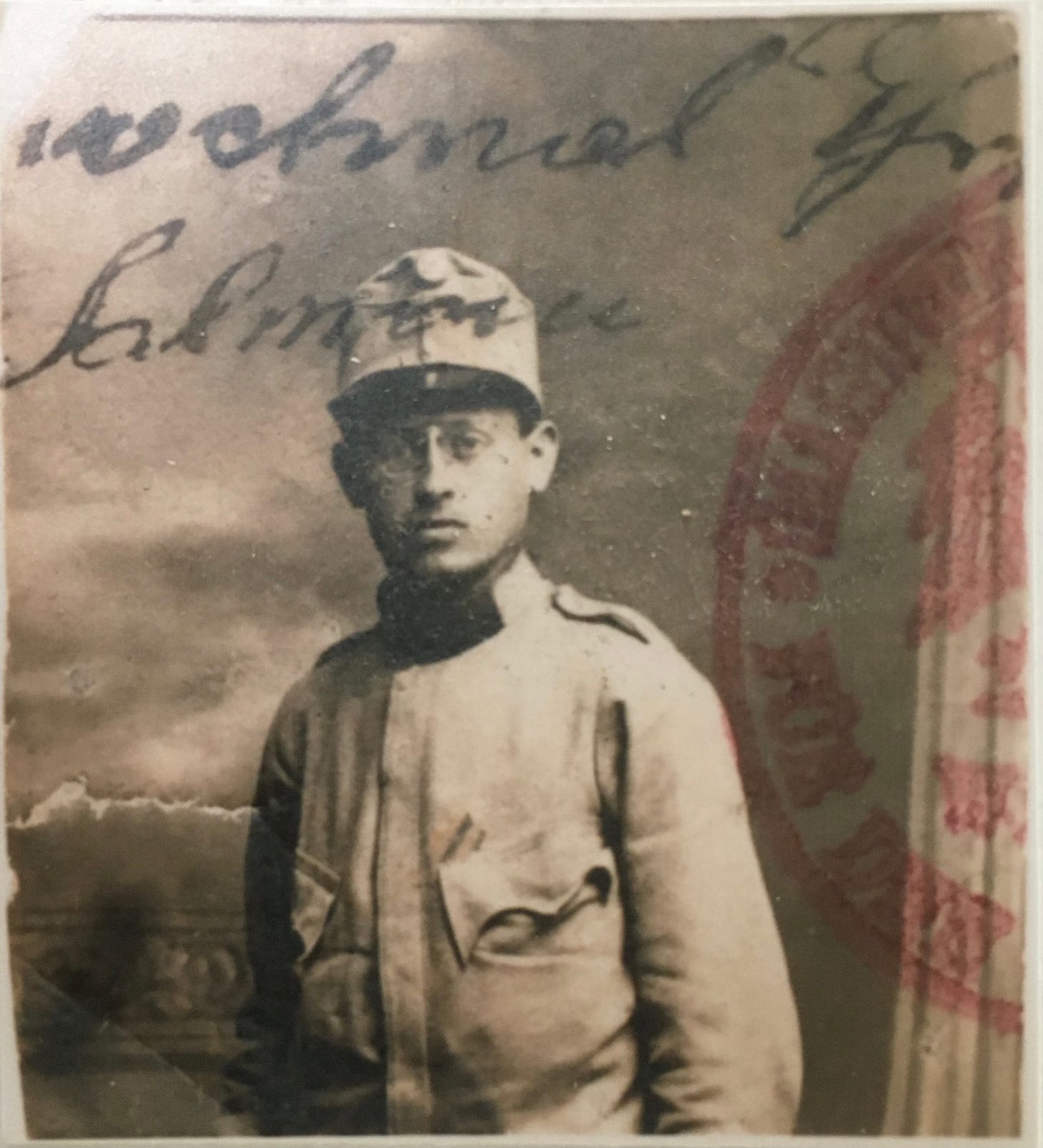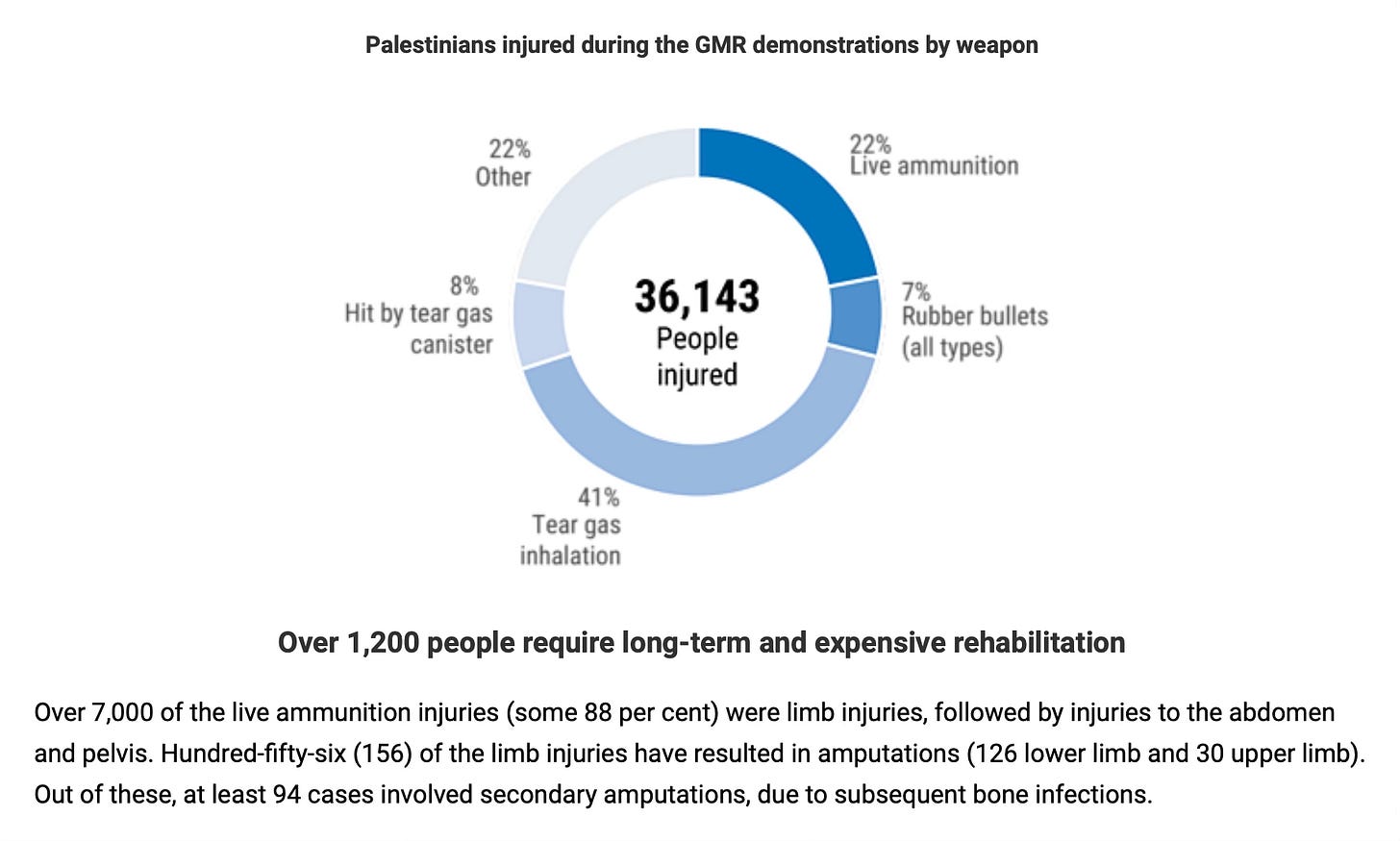The state for the oppressed became the oppressor state
Self-admitted shock-and-awe terrorists, merchants of death and sociopathic war criminals rule the US—the biggest by far, they are not alone
After the firebombing of Tokyo, Curtis LeMay, who later became the commander of the U.S. Strategic Air Command, declared, “There are no innocent civilians.” That dictum has been the basic U.S. military doctrine ever since. The corporate media rendition of this principle is: we are noble warfighters; they are terrorists. The myth is sold by a steady stream of propaganda, as originally developed by Edward Bernays. For more, follow this link, turn off the “news,” and read Bernays’ Propaganda.1
The no-innocent-civilians doctrine is a murderous pandemic fanned by the U.S. war economy. In the nuclear age, it is nothing short of reckless endangerment of life on Earth. Poets understand what politicians, the military and freedom fighters deny. It’s not all that complicated. W.H. Auden’s September 1, 1939 sums it up:
I and the public know
What all schoolchildren learn,
Those to whom evil is done
Do evil in return.
Our thank-you-for-your-service politicians and assorted terrorists must, on a daily basis, be confronted with Alex Comfort’s Notes For My Son:
Remember when you hear them beginning to say Freedom
Look carefully see who it is that they want you to butcher.
...
Remember, the smell of burning will not sicken you
If they persuade you that it will thaw the world.Beware. The blood of a child does not smell so bitter
If you have shed it with a high moral purpose.
Speaking from what I have seen in life, I want to focus on Auden’s 1939 Refugee Blues. At the time, it was about the plight of Jewish refugees from Nazi Germany. I read it as describing the Universal Refugee, the victim of Buffy Sainte-Marie’s Universal Soldier whose orders come from him, and you and me. But let Auden speak:
Say this city has ten million souls,
Some are living in mansions, some are living in holes:
Yet there’s no place for us, my dear, yet there’s no place for us.Once we had a country and we thought it fair,
Look in the atlas and you’ll find it there:
We cannot go there now, my dear, we cannot go there now.In the village churchyard there grows an old yew,
Every spring it blossoms anew;
Old passports can’t do that, my dear, old passports can’t do that.The consul banged the table and said:
“If you’ve got no passport, you’re officially dead”;
But we are still alive, my dear, but we are still alive.Went to a committee; they offered me a chair;
Asked me politely to return next year:
But where shall we go today, my dear, but where shall we go today?Came to a public meeting; the speaker got up and said:
“If we let them in, they will steal our daily bread”;
He was talking of you and me, my dear, he was talking of you and me.Thought I heard the thunder rumbling in the sky;
It was Hitler over Europe, saying: “They must die”;
O we were in his mind, my dear, O we were in his mind.Saw a poodle in a jacket fastened with a pin,
Saw a door opened and a cat let in:
But they weren’t German Jews, my dear, but they weren’t German Jews.Went down the harbour and stood upon the quay,
Saw the fish swimming as if they were free:
Only ten feet away, my dear, only ten feet away.Walked through a wood, saw the birds in the trees;
They had no politicians and sang at their ease:
They weren’t the human race, my dear, they weren’t the human race.Dreamed I saw a building with a thousand floors,
A thousand windows and a thousand doors;
Not one of them was ours, my dear, not one of them was ours.Stood on a great plain in the falling snow;
Ten thousand soldiers marched to and fro:
Looking for you and me, my dear, looking for you and me.
Eliane Aberdam, Professor of Music at the University of Rhode Island, set this poem to music. The university’s Concert Choir performed the piece under Mark Conley’s direction. Too many know what Auden wrote about. So do I, even if it’s only indirectly. My mother and her family escaped from Vienna after the Nazis annexed Austria in 1938. My mother, later in life, wrote up her story, intended for her grandchildren. She called it Lest I Forget, a reference, I guess, to Deuteronomy 25:19.
On the 11th of March, 1938, troops of Nazi Germany invaded Austria to incorporate it into the Third Reich. My mother wrote about that day:
Our world collapsed. Within a few minutes the streets swarmed with SA, the brown shirts, and Austria's ROT WEISS ROT (RED WHITE RED) had disappeared. The 11th was a Friday, everything was ready for Shabbat, as usual, but it is a Shabbat that I’ll never forget. Next day, the SA stood in front of shops in our neighborhood, owned by Jews, with banners "Arier kauf nicht beim Juden." (Arian don’t buy from the Jew.) Later in the morning they picked my father up, who was returning from Shul [Yiddish for synagogue]. He had to stand in front of a shop with that horrible banner. My uncle was on his way to see if my father got home safely. He thought nothing could happen to him as he was Polish. He saw my father and took over from him.
Normal life had ended. Within weeks, my grandparents’ textile supply, their business, was confiscated. 25 years of hard work, gone! My grandfather left Vienna in June, 1938, for Palestine. He originally, came from an orthodox Jewish community in Belz in western Ukraine. With my grandmother he fled the Russian pogroms at the start of World War I. He served in the Austro-Hungarian army, but was discharged, probably because of poor eyesight. Subsequently, he spent time in Denmark with his sister and her family. Why Denmark? I have no idea.

My mother, 15 years old at the time, described how one day she was sent to pick up passports for her mother and herself. On her way home, the street car stopped. All had to get off and join the hysterical mob saluting Hitler who looked down on them from a balcony. Then came Kristalnacht, November 9 to 10, 1938. A former customer, a swastika stuck under his lapel, had stopped by to warn them to stay home because, as he said, something was brewing: “Please don't answer the phone, and when the doorbell rings do not open the door.” The jackbooted SA indeed arrived, rang the door bell, and started to kick in the door. The caretaker of the apartment building saved them telling the SA: “They are not at home.”
It took my mother and grandmother until December of that year to join my grandfather and most of the rest of the extended family in Palestine. In the meantime, my aunt and uncle had escaped to the Netherlands, where they fled as the Luftwaffe bombed Rotterdam in May of 1940. They survived the war with false identity papers and in hiding. The story of my family is one with a happy ending and yet the burden always remained. My biological grandmother died in 1944, and when the war ended, my grandfather moved to The Netherlands, where he remarried to the only grandmother I have known. She told us how she has survived the Theresienstadt Ghetto.
Both of Norm Finkelstein’s parents were holocaust survivors. Both were in concentration camps during World War II. His mother survived Majdanek and his father Auschwitz. I share Finkelstein’s Palestinian dilemma:
Here is the question: what were the people of Gaza supposed to do? I'm going to give you a frank personal admission, and I'm not proud of it. But I want to place this current situation in context. I first became involved in the Israel-Palestine conflict in June 1982 when Israel invaded Lebanon. I ended up writing my doctoral dissertation on a topic related to the Israel-Palestine conflict, and then I ended up devoting the whole of my adult life to that conflict. 40 years! And come 2020, even I gave up. I started to write about other subjects. I thought the situation was hopeless, and there was a lot of guilt stirred up inside me, because I realized I was abandoning a people trapped in a concentration camp.
I had four good friends in high school. Six of the eight grand parents were murdered in concentration camps, sharing the fate of 75% of the Jews in The Netherlands. We knew the statistics, but the dead never were never ones we otherwise would have known. They were never mentioned. I knew but never really knew until I found their names and dates and place of death on the Internet. Max Nebig, the father of another friend, Bennie, was one of two—yes you read that correctly—two survivors of 389 young Jewish men sent to concentration camp Mauthausen. They had been arrested in 1941 as a collective punishment for the death of a Dutch Nazi militiaman killed during a riot sparked by harassment of Jews.
We learned in high school that collective punishment is what the Nazis did. On August 6, 2014, the Washington Post reported on the Israeli response to mortar and rocket attacks originating in Gaza:
“I’ve never seen such massive destruction ever before,” Peter Maurer, the president of the International Committee of the Red Cross, said in a tweet Tuesday after visiting Gaza.
The U.S. Senate, for the occasion, adopted one of its endless stream of sickening, one-sided, self- and war-racketeer-serving resolutions.
How about nonviolent protest? Finkestein addressed this. The following is a documented version of his observations, the casualty count of the “Great March of Return” in 2018

Finkelstein continues and rhetorically asks:
Does it really surprise you? Is it really a shock that a couple of days ago, the people of Gaza, most of whom—let's bear it in mind—were born in that concentration camp, would do something desperate to break free. Who dare criticize whatever tactics they employed? I am not approving it, but I am not disapproving it, because I don't know what I would do if I had been born into a concentration camp and spent 20 years of my life there.
I grew up seeing the burden of the oppressed among my family, my friends, and the kids I went to school with. Gradually, since 1967, I started to see how the country for oppressed has become the country of the oppressor. Of course, as this letter from Ben Gurion to his son Amos demonstrates, it all started much earlier. But what did I know?
I am not a poet and I steal only from the best, Adrienne Rich in this case:
My heart is moved by all I cannot save:
so much has been destroyed
I have cast my lot with those
who age after age, perversely,
with no extraordinary power,
reconstitute the world.
Another more recent source is the BBC’s monumental The Century of Self. You can start at the top, or if you are only interested in how Dick Morris, “one of America's most ruthless political strategists,” saved President Clinton’s second term, you may want to start here.




Thank you, Peter. I am so sorry for what has happened un your family, and distraught over the pain being caused in the Middle East.
Thanks